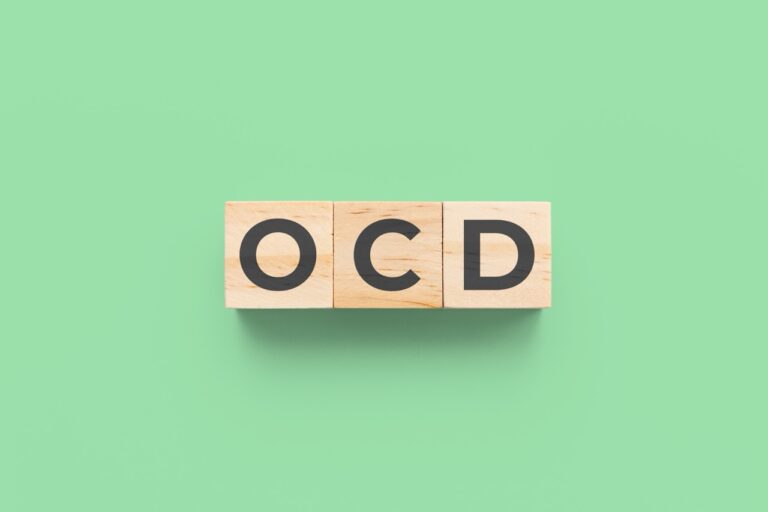The Nonsense of Obsessive-Compulsive Disorder (OCD)
 Author:
Janet Singer
Author:
Janet Singer
 Editor:
Patrick Nagle
Editor:
Patrick Nagle

Obsessive-compulsive disorder (OCD) is a mental health condition characterized by intrusive, unwanted thoughts and repetitive behaviors or mental rituals intended to ease distress. These thoughts can feel deeply disturbing, even if the person recognizes they are irrational. Compulsions are the responses to those thoughts, often carried out in hopes of reducing anxiety or preventing imagined harm.
While OCD takes many forms, a common theme runs through it: an overwhelming need for certainty in an uncertain world. Compulsions offer short-term relief but ultimately reinforce the fear. Over time, this cycle strengthens, trapping the individual in a pattern that becomes harder to break.
The Role of Certainty in OCD
The drive for certainty is not unique to those with OCD. Everyone seeks reassurance from time to time. But in OCD, the demand for certainty becomes all-consuming, and the tolerance for doubt nearly vanishes. The mind clings to the illusion that perfect safety, moral purity, or clarity can be achieved through enough checking, cleaning, confessing, or mental reviewing.
This is where treatment begins. The most effective therapy for OCD, known as Exposure and Response Prevention (ERP), helps individuals gradually face their fears while resisting the urge to perform their usual rituals. Over time, this allows the brain to learn that uncertainty is not dangerous—and that it can be endured without constant reassurance.
Psychiatrist Dr. Jeffrey Schwartz put it simply:
“In OCD, the brain is caught in a loop of repetitive thoughts and behaviors, but the power to change that loop is within the individual.”
This insight is at the core of recovery. Though OCD may distort perception and increase fear, it is possible to interrupt the cycle through deliberate action.
Living with Uncertainty
Uncertainty is part of everyday life. We get out of bed without knowing how the day will unfold. We send our loved ones off without constant proof of their safety. We eat food, drive cars, and interact with others without guarantees that everything will turn out as planned.
Most people tolerate this without much thought. But for those with OCD, uncertainty in specific areas becomes intolerable. It is not a general discomfort with unpredictability, but a narrow, targeted fear tied to what matters most: health, safety, morality, relationships, or personal responsibility.
This selective fear creates a paradox. A person may feel paralyzed by doubts about whether they offended a friend, yet think nothing of merging into traffic without overanalyzing every risk. They may need to check the stove ten times before leaving home, yet not worry whether the car’s brakes are failing. OCD latches onto deeply held values and twists them into anxiety-inducing scenarios. The fear is not random, it is personal and emotional.
The Illogic Behind the Logic
OCD is often described as illogical, but it may be more accurate to say it defies everyday logic. A person may wash their hands until they bleed, yet touch a public surface moments later without concern. They may fear accidentally harming someone, yet trust themselves in other high-stakes situations.
These inconsistencies are not a sign of insincerity. They are a reflection of how OCD works. The compulsion is not based on reason, it is a response to anxiety that feels urgent, even when the person knows it doesn’t make sense. This is part of what makes OCD so exhausting. The mind is at war with itself, and logic alone rarely resolves the conflict.
Many individuals with OCD are fully aware that their fears are exaggerated or irrational. But insight does not always offer relief. In fact, it can increase distress, creating guilt or shame around the inability to stop. This self-awareness can be painful, but it also opens the door to meaningful change.
Why Certain Thoughts Become Obsessions
People with OCD often ask, “Why this thought?” The content of obsessions can be distressing and confusing-fears of harming loved ones, acting immorally, or being contaminated, despite no history or intent to cause harm.
What becomes an obsession is not random, even if it feels that way. OCD often targets a person’s values. Someone who values kindness may fear being cruel. A devout person may obsess over blasphemous thoughts. The fear is not that the person wants to act on the thought, but that having it at all means something terrible about them.
These thoughts, called intrusive thoughts, are actually common in the general population. The difference in OCD is how much meaning is attached to them. Instead of letting the thought pass, the person becomes stuck, trying to find certainty that it means nothing, that they would never act on it, or that the thought will go away. But every attempt to control or analyze the thought strengthens it.
How ERP Helps Break the Cycle
ERP is not about forcing someone to face their worst fears all at once. It is a structured process that helps the individual slowly build tolerance for discomfort. In ERP, the person intentionally engages with a feared thought, image, or situation and then resists the urge to perform their usual compulsion.
Through repeated practice, the anxiety begins to fade. The brain starts to recognize that feared outcomes are either unlikely or tolerable, and that rituals are not necessary to stay safe or good or clean. Over time, the individual gains confidence, not in the belief that nothing bad will happen, but in their ability to handle uncertainty if it does.
ERP is challenging. It requires patience, support, and a willingness to feel uncomfortable. But it works. Research consistently shows that ERP is the most effective treatment for OCD. Many people see significant improvement in symptoms and a return to the life they had put on hold.
Moving Toward Recovery
OCD can be intense and confusing, but it is treatable. Recovery does not mean eliminating all anxiety or controlling every thought. It means learning to live with discomfort and to stop chasing impossible certainty.
The thoughts that OCD produces are not a reflection of character. Compulsions are not a reflection of weakness. They are symptoms of a disorder that can be understood and managed. With proper treatment and support, many people find freedom from the grip of OCD and begin to reclaim parts of their lives that felt lost.
There is no need to face OCD alone. The tools for change are real, and so is the hope for recovery.
We are a health technology company that guides people toward self-understanding and connection. The platform provides reliable resources, accessible services, and nurturing communities. Its purpose is to educate, support, and empower people in their pursuit of well-being.
Janet Singer is a blog writer, writing about obsessive-compulsive disorder, particularly from her experience as a mother with a son affected by this condition.
Latest

Categories
- Opinion (137)

